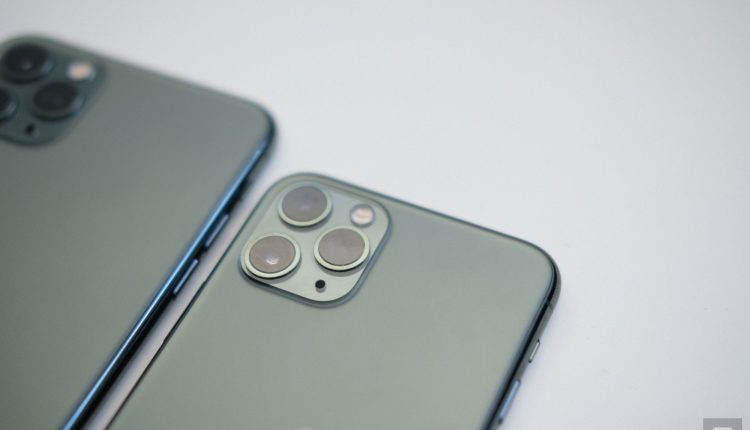Apple has unveiled the iPhone 11, 11 Pro and 11 Pro Max, has it done enough to convince customers to buy the latest handsets when they hit stores on Sept. 20.
The iPhone 11, the nominal successor to the XR which it resembles, comes in six colors and has a handsome 6.1-inch Liquid Retina display. It will be available in 64GB, 128GB or 256GB storage capacities.
The anodized aluminum iPhone 11 has the same powerful A13 Bionic processor – Apple claims it as the fastest chip ever put in a smartphone – as the 11 Pros.
And the iPhone 11 has a dual-camera system – the XR had one rear camera – built around wide and ultra-wide cameras, each 12-megapixels. Apple uses shading on the screen to help you get a sense of what’s in the frame on wide shots.
Apple says you’ll get an additional hour of battery life with the 11 compared to the XR, but I’m not sure that you’ll immediately trade in a phone you bought over the last several months for this new mode. But most people in the market for the iPhone 11, or the iPhone 11 Pro models, are probably looking to upgrade handsets that are well over two years old. So those battery life differences are likely to be way more pronounced.
It should be even more dramatic if Apple’s claims for the battery life on the 11 Pro and 11 Pro Max are accurate. The 11 Pro boasts up to four more hours of battery life in a day than the iPhone XS had and five more hours for the iPhone 11 Pro Max compared to the iPhone XS Max.
Otherwise, the camera, again, would be the other main reason to consider the Pro. Each has a triple-camera system with wide, ultra-wide and telephoto lenses. According to Apple, the telephoto lens can capture 40% more light compared to the iPhone XS.
(And we’re looking forward to testing these in the wild soon, not just in Apple’s crowded demo room.)
It was pretty easy to tap the screen to move back and forth from one lens to another.
Having the lens trio also promises to improve the pictures you take through Portrait mode.
One thing that’s intriguing is an upcoming software feature called Deep Fusion. It uses machine learning and takes advantage of the neural engine inside of A13 Bionic to analyze each pixel in a photo, for texture, details and such. Even before you press the shutter to snap an image, the phone automatically captures eight long and short exposure photos. When you do press the shutter, a long exposure is also captured. In an instant, the phone is supposed to take all this information, smush it together, to produce what is supposed to be the ideal possible image. On the stage, Apple exec Phil Schiller called it “computational photography mad science.”
Note to fans of Google’s Pixels. Yes, Google has long applied its own mad science to photos.
The Pixel also beat the iPhone to a Night Mode feature that promises to let you automatically take good-looking photos even in dim light. I’ve been impressed with Google’s version of the feature and will be eager to see how the iPhone stacks up. But one nice thing is that a user doesn’t actively have to turn on the feature; the iPhone makes that call for you on the fly.
With the all of the new 11s, you can press down against the shutter button to start recording video, a feature Apple calls Quick Take. You may be wondering about what these means for shooting “bursts” which up to now you enabled the same way. Now, after pressing against the shutter button you must quickly swipe down (or to the left depending on how you’re holding the phone) to take those bursts, lest the iPhone camera instead goes into video mode. During my brief hands-on time, this took a bit of getting used to.
Improvements to the iPhone 11 models also come to the front selfie camera now with a wider field of view. That promises to make it easier for the phone to recognize your face via Face ID authentication.
Another cool feature that comes to the iPhone that I was able to try out: slow-motion selfies.
The iPhone 11 Pros come in four colors; I’m partial to the brand new Midnight Green finish.
The 11 Pros are available with 64 GB, 256 GB or 512 GB storage capacities. The 11 Pro has a 5.8-inch display; the 11 Max, 6.5 inches.


